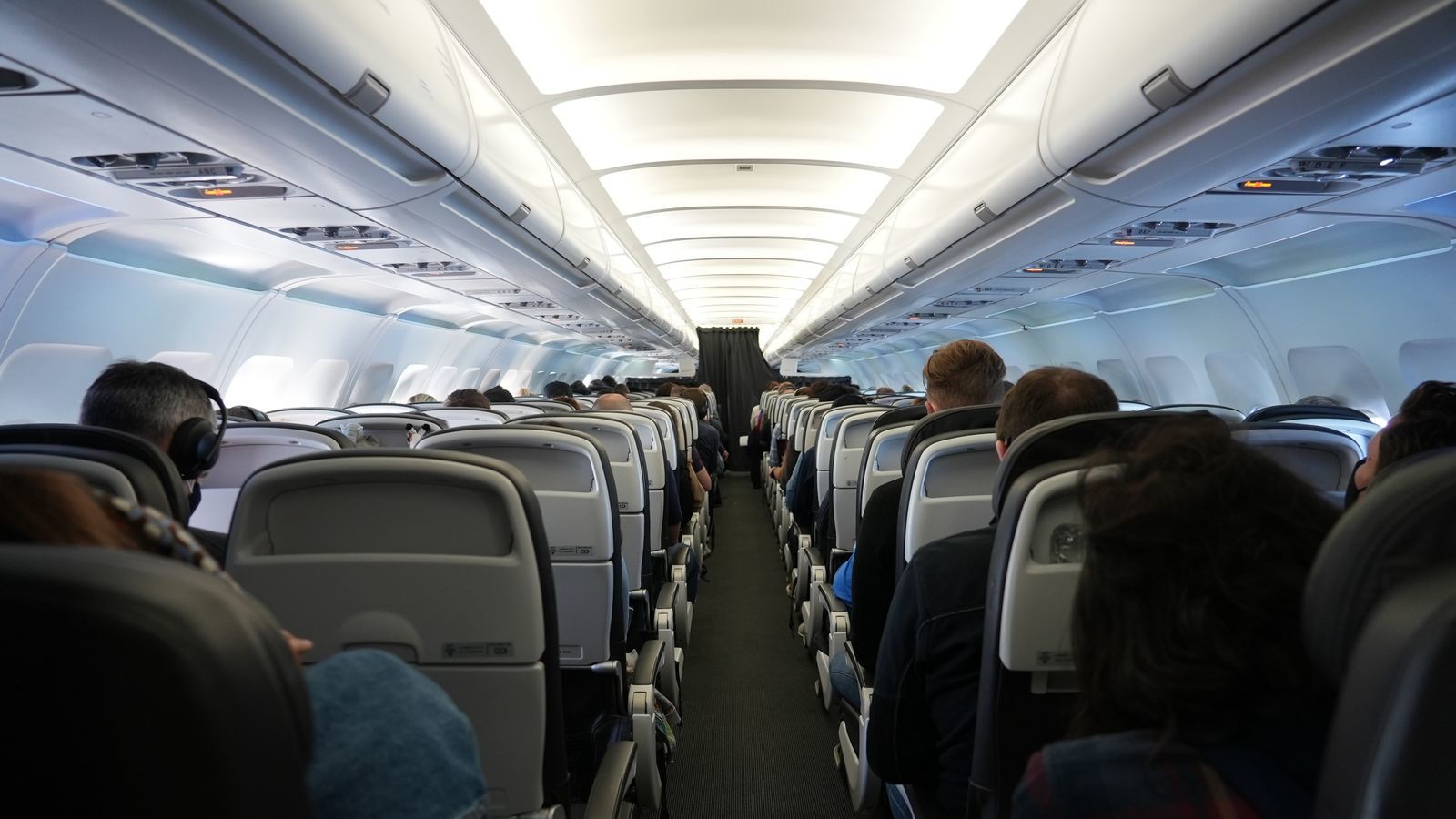Coronavirus travel rules have been relaxed for those returning to England, allowing fully vaccinated holidaymakers to take cheaper lateral flow tests instead of PCRs.
Holidays have been made a fair bit cheaper just in time for half-term, with PCR tests scrapped for fully vaccinated passengers arriving in England.
It's the latest change to the UK government's travel rules, aimed at making trips easier and more accessible.
What's the latest?
The latest change concerns testing and ties into recent tweaks to the traffic light system.
The old traffic light system of red, amber and green countries has been replaced with just a red list and a "rest of the world category".
People who are fully vaccinated will not need to take a pre-departure test before they arrive back in England from anywhere in the "rest of the world" category.
From 24 October, the PCR test taken on the second day after arrival is replaced with a cheaper lateral flow.
Grant Shapps said of the changes: "With half-term and winter sun around the corner, we're making it easier for families and loved ones to reunite, by significantly cutting the number of destinations on the red list, thanks in part to the increased vaccination efforts around the globe."
The transport secretary added that they were designed to "restore people's confidence" and "rebuild our economy".
 Only seven countries remain on the red list
Only seven countries remain on the red list
Which countries are on the red list?
As of 4am on Monday, 11 October, only seven countries remain on the red list. They are:
Panama
Colombia
Venezuela
Peru
Ecuador
Haiti
Dominican Republic
Testing
Residents who are fully vaccinated no longer need to take a pre-departure lateral flow test before they return to England from a non-red list country.
They will still need to take a lateral flow test, purchased from one of the private providers listed on the gov.uk website, on the second day they are back.
The government has confirmed people will be able to take pictures of their negative lateral flow results and booking reference to prove they have not contracted COVID.
Health Secretary Sajid Javid previously told Sky's Trevor Phillips On Sunday: "The cost that generates for families, particularly families just trying to go out and holiday, you know we shouldn't be keeping anything like that in place for a second longer than is absolutely necessary."
Those who are unvaccinated still need to take a pre-departure test before travelling back to England, and still have to purchase a PCR for their day-two test.
A 10-day home quarantine is also still mandatory for people who are unvaccinated - regardless of where they have travelled from.
They can pay for a PCR test on day five if they want to end their quarantine early as part of the government's Test to Release scheme.
Recognised vaccines
From 11 October, the government increased the number of countries whose vaccination programmes it recognises.
Fully-vaccinated arrivals from 37 new countries, including Brazil, Hong Kong, India, Pakistan, South Africa and Turkey, will be treated the same as double-jabbed Britons.
This means they will not have to quarantine or take a day five PCR test - just a test on day two.
What happens if you come back from a red list country?
Anyone returning from a red list country is still required to pay £2,285 to quarantine for 11 nights at a government-approved hotel.
What happens if a traveller tests positive when returning to the UK?
Anyone who tests positive needs to isolate and take a free confirmatory PCR test.
This would then be genomically sequenced to help identify new variants.
Will the new rules apply to the whole of the UK?
The travel changes only apply to England.
Wales has announced that it plans to make the same changes from 31 October, while Scotland and Northern Ireland have indicated that they could do so at a later date.
Scottish First Minister Nicola Sturgeon said on 28 September that she would make the changes "with some reluctance", but added: "We have also considered the practical consequences of not having an aligned position.
"In particular, we have to be realistic about the fact that people living in Scotland could decide to return here via airports based in England, if different rules are in place for Scottish airports.
"The result of this would be a disadvantage to our aviation and travel sector, but without any significant public health advantage."
Are the rules the same for leaving the UK and returning from other countries?
The rules only apply to those flying back to the UK.
Towards the end of October, passengers who change flights or international trains during their journey will be able to follow the measures associated with the country they originally departed from, rather than the countries they have been through as part of their journey.
However, a date for this has not yet been confirmed.















